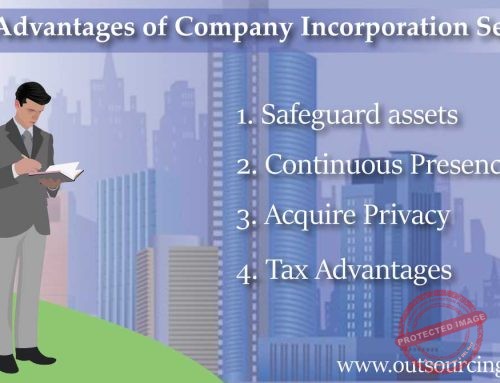Limited Company Formation refers to the process of creating a separate legal entity that is owned by one or more individuals, who are called shareholders.
To form a Limited Company, one must register with the Companies House, which is the official government body responsible for maintaining the register of companies in the BD.
However, there are also some drawbacks, such as increased administrative and legal requirements, increased costs, and reduced privacy.
Let us go through this topic in depth!
Why Is Limited Company Formation Profitable to Business Investment Services
The formation of a Limited Company can be profitable for Business Investment Services for several reasons. There is a demand for professional services to help individuals and businesses navigate the complex process of forming a Limited Company.
Business Investment Services can earn ongoing revenue by providing ongoing support to the Limited Company after formation. This may include providing accounting and bookkeeping services, tax advice, and helping with compliance and regulatory requirements.
The establishment of a Limited firm may open up new business options for Business Investment Services, such as advising the firm or its shareholders on mergers and acquisitions, financing, and strategic planning.
Overall, the formation of a Limited Company can be profitable for Business Investment Services by providing a range of services to clients before, during, and after the formation process.
Bangladesh’s corporation tax rate will be reduced to 30% in 2022. The maximum rate was 40%, while the lowest rate was 25%. The National Board of Revenue publishes data once a year.
Does Limited Company Formation Help Facilitate Tax Directness
Limited Company Formation can help facilitate tax efficiency for businesses, but it does not necessarily guarantee tax directness.
One of the main advantages of forming a Limited Company is that it can provide tax advantages, such as lower tax rates and increased flexibility in terms of how profits are distributed.
However, it is important to note that tax directness depends on various factors, such as the nature of the business, the industry it operates in, and the specific tax laws and regulations in place.
Furthermore, there are anti-avoidance rules in place to prevent businesses from using Limited Company Formation solely for tax avoidance purposes.
Therefore, while Limited Company Formation can aid in tax efficiency for businesses, it is critical to get competent guidance and ensure that any tax planning tactics are following applicable laws and regulations.
Limited Company Formation VS Company Registration
Limited Company Formation | Company Registration |
The process of forming a Limited Company | The process of registering a business with the relevant government authority |
Specifically refers to the formation of a Limited Company | Can be any type of business structure, such as a sole trader or partnership |
The business is incorporated as a separate legal entity | The business becomes a legal entity |
Shareholders have limited liability for the company’s debts and liabilities | Owners are personally liable for the business’s debts and liabilities |
Additional processes include creating articles of incorporation, issuing shares to shareholders, and appointing directors. | Generally involves providing basic information about the business, such as its name, address, and details of its owners |
Can be more complex and involve more administrative and legal requirements | Generally simpler and less complex |
Provides limited liability for shareholders and tax advantages | Provides legal recognition and permits the company to begin trading. |
Advantages of Limited Company Formation
There are several advantages to forming a Limited Company, including:
1. Limited Liability
Among the fundamental advantages of using Limited Company Formation is that it protects stockholders from liability. This implies that their assets are safe if the company incurs debts or legal issues.
2. Tax Efficiency
Limited Companies can be more tax efficient than other business structures, as they can take advantage of various tax reliefs and allowances. Additionally, shareholders can receive income in the form of dividends, which are typically taxed at a lower rate than regular income.
3. Increased Credibility
A Limited Company is a recognized legal entity, which can increase its credibility with customers, suppliers, and investors.
4. Access to Funding
Limited Companies have access to a wider range of funding options, such as business loans, grants, and equity investments.
5. Continuity
Even if one or more of its stockholders dies or leaves the firm, a Limited Company can continue to exist. The shares can be transferred to other shareholders, ensuring the business’s continuance.
6. Retirement Planning
Limited Company Formation can also provide opportunities for retirement planning, such as creating a pension scheme for directors and employees.
Conclusion
Limited Company Formation is a common company form that offers various advantages to both firms and their owners. By founding a Limited Company, owners may preserve their assets, benefit from tax breaks, and get access to a larger choice of funding possibilities.
However, forming a Limited Company can also involve additional administrative and legal requirements, and may result in higher costs.
It is critical for business owners to thoroughly assess the benefits and drawbacks of Limited Company Formation and seek expert guidance to ensure that it is the best option for their company.
FAQs
1. How do I form a Limited Company?
To form a Limited Company, you must first register with the Companies House, which is the official government body responsible for maintaining the register of companies in the UK. The process involves choosing a company name, deciding on directors and shareholders, and issuing shares to the shareholders.
2. What are the legal obligations of a Limited Company Director?
Directors of a Limited Company have legal obligations, such as filing annual accounts and tax returns with Companies House, maintaining accurate company records, and ensuring compliance with various legal and regulatory requirements.
3. What is the difference between a Limited Company and a Sole Trader?
A Limited Company is a separate legal entity from its owners, but a Sole Trader is not. Sole traders are individually accountable for their business obligations, but Limited Company stockholders have limited liability protection. Additionally, Limited Companies are subject to additional administrative and legal constraints than sole proprietors.






